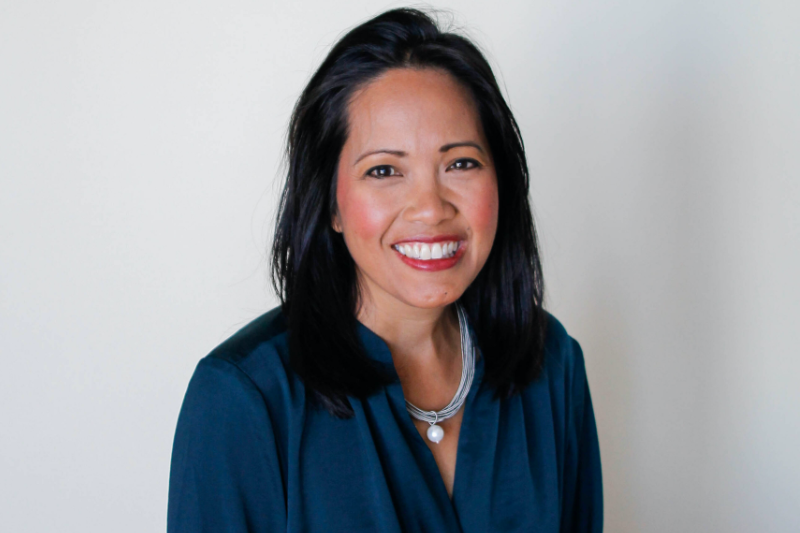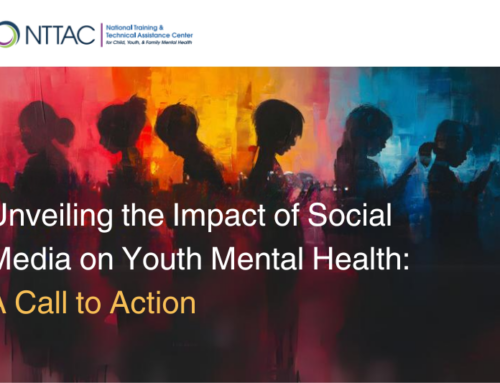The daughter of two physicians and earnestly invested in helping others, Rachele Espiritu imagined she’d follow her parents’ paths and become a doctor. But as she set out to pursue a pre-med degree at UC San Diego, she learned that a close friend of hers died by suicide.
“She was Filipina and nobody in our community knew about the challenges she was experiencing. What it raised for me was a recognition of the stigma that exists in the Filipino community about talking about mental health,” Rachele said. “That drove me into the field of psychology with a specific focus on wanting to make sure I was working with communities of color who don’t have the same access to good mental health services.”
It was then that Rachele began to realize the deep-rooted impacts of stigma, and the need for more culturally competent, culturally responsive care for mental health needs. That conviction led her to a doctorate in clinical psychology, the field of evaluation, and, eventually, to becoming a founding partner of Change Matrix (CM), which honors National Minority Mental Health Awareness Month this July.
Laying the Groundwork for Ongoing Change
Today Rachele uses her expertise and background to improve outcomes for racially and ethnically diverse populations across the U.S. perhaps most notably in the National Network to Eliminate Disparities in Behavioral Health (NNED), which was CM’s starting project.
“The NNED is grounded in the idea that there are pockets of excellence around our country that are doing good work with racially and ethnically diverse communities and that we could serve as a network or a hub to help support these communities to amplify their work, to provide resources, and to connect them through a network. For me, that is a lot of how Change Matrix approaches our work, too, by centering and engaging diverse communities in our work.”
Since its start over a decade ago, CM — and its mental health-related offerings — has grown exponentially under Rachele’s leadership. In addition to her work as the director of NNED’s National Facilitation Center, she also co-directs the Pacific Southwest Mental Health Technology Transfer Center and all of CM’s Colorado health projects. This includes the Community Partnerships for Health Equity, the Colorado Equity Compass, Healthy Places, Healthy Food for Denver’s Kids (HFDK), and the Rural Workforce Learning Collaborative. She also co-directs Expanding the Bench® and partners with the National Asian American Pacific Islander Mental Health Association’s executive director Dr. DJ Ida on projects supporting Asian Pacific Islander communities.
On a macro scale as a CM partner, Rachele’s work consistently brings awareness to and refines CM’s services related to the unique facets of mental health among racially and ethnically diverse communities. When asked about her ongoing motivation to do so, she cites a “top-down, bottom-up approach” to policy change as a key driver.
“I feel like there’s always opportunities to grow,” she says. “Supporting communities to think about and know that they have the power to leverage change and use their voices [is key]. And I think we’re doing a good job of that. I want to make sure that we’re making the connection then to, ‘How does this change policy? How does this challenge and change the rules and the systemic racism in the sectors that we work in?’”
Every Small Step Helps
And policy change is not just limited to government agencies in Rachele’s eyes. She seeks to effect change wherever possible, even if it helps to persuade just one partner organization to update an antiquated health policy that isn’t centered in equity. Perhaps the key to her success is a question that she consistently asks herself, ‘How do we keep a lens of equity in our organizations so that we can ensure that we are creating the environment that we want for team members and service populations?”
“We are doing a lot of that at the organizational level, and I think that thinking about systems now is important,” she says.
For instance, within HFDK, Rachele and her team members advocated for the City of Denver to change its contracting language so that communities owned the data they provided during the project.
“It is typical for funders to require grantees to turn over all of their data, and for them to then lose the availability to use the data for change,” Rachele said. “With this change, communities are able to keep their data and use it to tell their stories for change.”
Taking Time to Check in and Spread Awareness
This Minority Mental Health Awareness Month, Rachele advises people both in and out of mental health-related fields to “check in” with their local communities to see if there are ways that they might be able to advocate for change. Often, Rachele says, just sharing stories around one’s own mental health experiences can be enough to enact change in people’s hearts and minds.
“I remember when this month was first designated and at the NNED we engaged in a lot of partnerships to amplify the importance of people sharing their stories. That’s what I’m always encouraging people to do — share your lived experience and your voice, because when you don’t, you’re going to lose power by not doing that,” she says. “We might have different ways of talking, expressing, and seeking help for [challenges]… not everyone wants to go to a therapist or follow traditional Western ways of coping, and there are many diverse ways to do that. And we need to honor those and celebrate them.”
And for those who don’t have the possibility of enacting a system- or organizational-wide policy change process around mental health, she advises starting small.
“Even asking, ‘How are you?’ It opens the door for a conversation that doesn’t need to be any more than that,” she says. “It just opens the door.”




